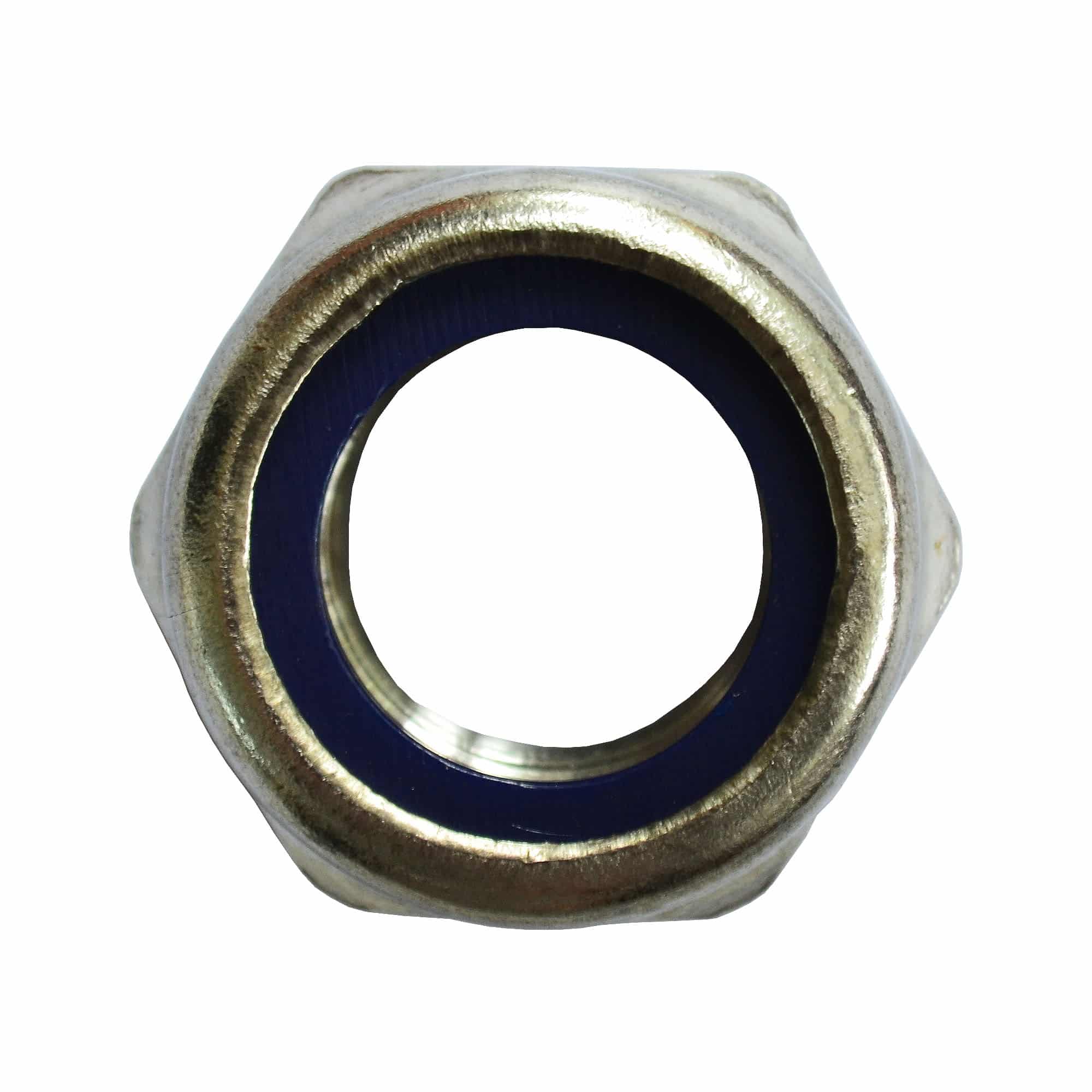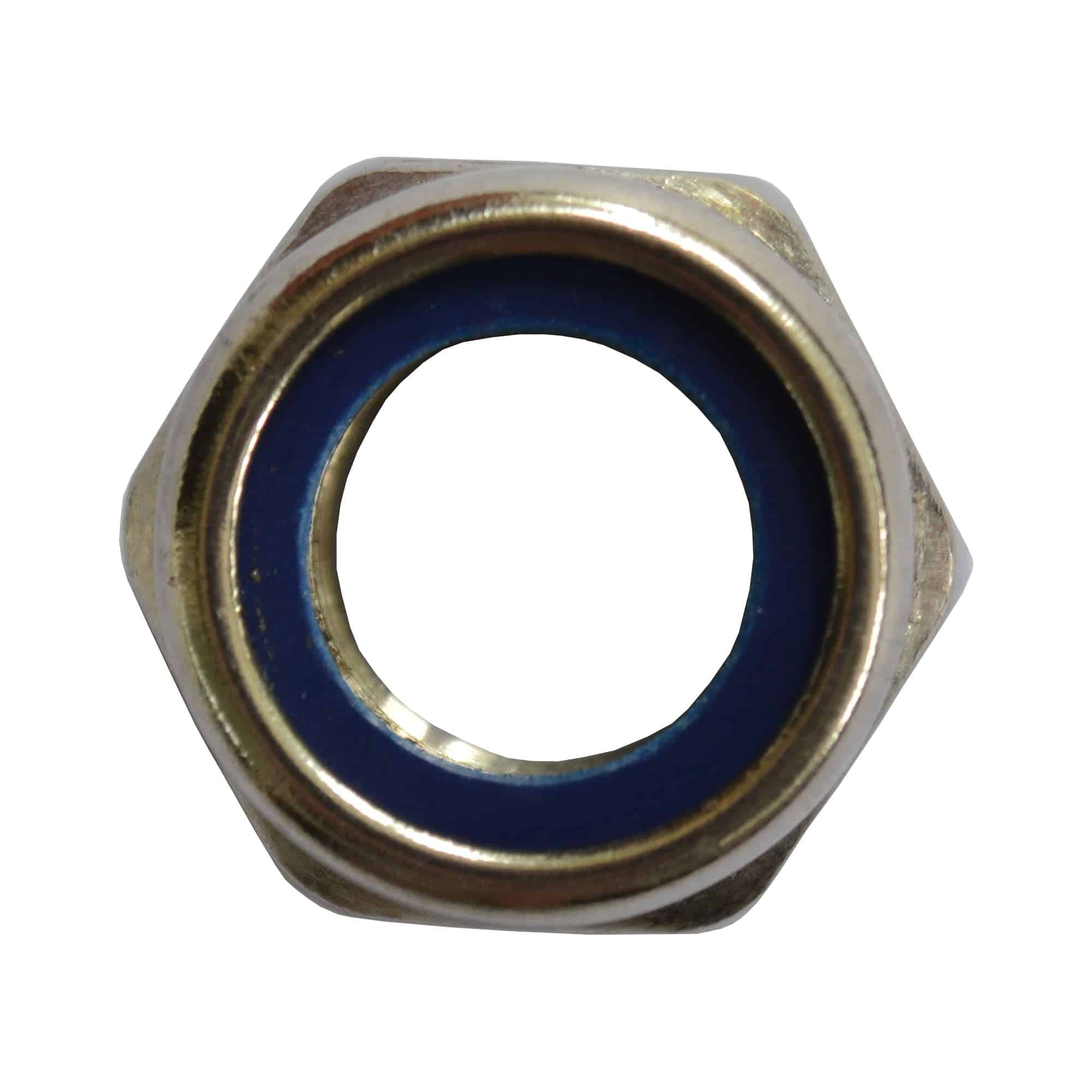- Massive Range
- FREE UK Delivery
- Rapid Dispatch
- Massive Range
- FREE UK Delivery
- Rapid Dispatch
- Massive Range
- FREE UK Delivery
- Rapid Dispatch
£7.91 – £351.87 inc VAT

Secure payments taken with:

This website is secured:
£ MULTIBUY SAVINGS – Order 3 For 10% Off
✔ Specialists In Rapid Shipments Of Any Size
✔ FREE UK Delivery Included
✔ Immediate Express Dispatch From Stock
✔ Tracked Delivery with Order Updates
✔ 30-Day Returns Accepted
@ ☏ Larger Pack Quantities Available
Are you looking for a durable and secure fastening solution that can withstand even the harshest marine environments? Look no further than the M14 Nyloc Insert Nut Nylon Lock Nut from Speciality Metals. Made from high quality A4 Grade 316 Grade steel, this versatile nut is corrosion resistant and low maintenance, ensuring your project stays strong for longer. The nylon lock ensures extra security, giving you peace of mind that your fasteners won’t loosen over time. So, whether you’re working on a boat or simply in need of a reliable fastening solution, the M14 Nyloc Insert Nut Nylon Lock Nut is the perfect choice for your needs.

Top quality stainless steel Nyloc nylon lock nuts supplied straight from Warrington, UK.
Speciality Metals offer a massive range of metal products to suit all levels of budget and any size of job. These nuts are offered to compliment our range of nuts, bolts & washers. We pride ourselves on our low prices and rapid fulfilment. Our fasteners are available from immediate stock, so dispatch would be fair immediate.
M14 Nyloc Insert Nuts offered by Speciality Metals are durable, versatile, and low maintenance. Designed for use in challenging environments such as marine environments, these nylon lock nuts are made of high-quality A4 Grade 316 steel that is corrosion-resistant. Nylon inserts add an extra layer of security, ensuring that the nut remains in place and does not loosen over time. They are a reliable fastening solution that offers long-lasting performance without the need for frequent maintenance. Whether you’re secure equipment, machinery, or other structures, M14 Nyloc Insert Nuts from Speciality Metals provide a reliable, secure solution.
Key product details:
Speciality Metals is known to be the United Kingdom’s best up-and-coming small-quantity metal company.
Furthermore we stock a vast range of plain wire mesh and perforated metal options that compliment our sheet metal range perfectly.
Over 50,000 customers of Specialty Metals are provided with fast, friendly customer service every year. We’re the place to try when you need metal of any shape and size. We’re based in Warrington, UK. We pride ourselves on our rapid turnaround and a large range of options.
Nylon lock nuts, commonly known as Nyloc nuts, can theoretically be used in aerospace applications, but there are stringent standards and considerations that must be met. Aerospace applications are highly critical, with zero tolerance for failure, so fasteners used in this industry usually require specialised testing, certification and quality control.
Material Specification: The material of the nut must meet aerospace standards, which often go beyond regular industrial grades. Materials need to be fatigue-resistant, corrosion-resistant and able to withstand extreme temperature fluctuations.
Temperature Tolerance: Nylon inserts are generally not suitable for the high-temperature environments commonly encountered in aerospace applications. The nylon can lose its locking capability at high temperatures, and even special heat-resistant nylon may not be sufficient for certain aerospace requirements.
Vibration and Load: While Nyloc nuts are designed to resist vibration-induced loosening, aerospace applications often involve dynamic loads and vibrations that are more extreme than those encountered in other industries.
Certification and Traceability: Every component, including fasteners, used in aerospace applications often needs to be traceable and certified to ensure it meets the required specifications.
Specialised Alternatives: Aerospace applications often use specialised locking mechanisms such as castle nuts with cotter pins, deformed thread locknuts or other specialised self-locking fasteners designed to withstand the extreme conditions encountered in flight.
Regulatory Approval: Any fastener used in aerospace will need to meet specific Federal Aviation Administration (FAA) or other relevant international regulations, which are incredibly stringent and often require extensive documentation and testing.
The suitability of nylon lock nuts, or Nyloc nuts, for medical devices depends on several key factors, including the specific requirements of the application, the materials used and regulatory compliance.
Biocompatibility: In medical applications, materials must often be biocompatible, meaning they should not trigger an immune response when in contact with bodily tissues or fluids. Depending on the application, standard Nyloc nuts may or may not meet this criterion.
Sterilisation: Medical devices frequently need to be sterilised, often at high temperatures or using chemical agents. The nylon insert in Nyloc nuts might not withstand these sterilisation methods without losing its locking capability.
Precision and Reliability: Medical devices often require high-precision components that are extremely reliable. While Nyloc nuts are generally reliable, they might not meet the stringent precision requirements needed in some medical devices.
Material Compatibility: If the device involves the use of aggressive chemicals or solutions, the material of the nut and the nylon insert must be compatible with these substances to ensure long-term performance and safety.
Regulatory Approval: Medical devices are subject to stringent regulations, such as FDA guidelines in the United States or CE marking in Europe. Any fasteners used must meet the specifications laid out by these and possibly other bodies.
Application Specific: Some medical devices are stationary and located in controlled environments, while others may be implantable or portable. The environment and stresses the device will encounter determine the suitability of Nyloc nuts.
Reusability: Many medical devices are single-use only, particularly those that come in direct contact with patients. In these cases, the longevity of the Nyloc nut’s locking feature may not be a concern.
The compatibility of nylon lock nuts, commonly known as Nyloc nuts, with acids or alkalis is contingent on multiple variables, including the material composition of the nut, the type and concentration of the chemical, as well as environmental factors like temperature and pressure. While the metal part, often made of stainless steel, may offer some resistance to corrosive substances, the nylon insert is generally sensitive to strong acids and alkalis and may degrade under such conditions. The duration of chemical exposure and the specific conditions, such as temperature and pressure, can also significantly influence the nut’s performance. Some nuts may come with specialised coatings for added chemical resistance, but these coatings themselves may have limitations and could interact with the nylon insert. Manufacturers often provide chemical compatibility charts, which can serve as a preliminary guide. However, for applications involving exposure to corrosive substances, consultation with material scientists or relevant experts is strongly recommended to assess the suitability of Nyloc nuts for the specific conditions.
Nylon lock nuts, commonly known as Nyloc nuts, are manufactured through a multi-step process that involves both the creation of the metal nut and the insertion of a nylon collar. Below are the general steps involved in the manufacturing process:
Material Selection: The first step is choosing the appropriate material for the nut, such as carbon steel, stainless steel, or other alloys, based on the intended application and required specifications.
Cold Forging: The selected material is typically cold-forged into the shape of a nut using high-pressure machinery. Cold forging helps improve the mechanical properties of the material.
Threading: After forging, the nut undergoes threading where internal threads are cut or rolled to match the threads of the bolt it will fasten.
Heat Treatment: Depending on the material and application, the nut may undergo heat treatment to enhance its mechanical properties like tensile strength, hardness and durability.
Surface Finishing: The nut may be coated or plated for added corrosion resistance or other characteristics. Common coatings include zinc, cadmium or a passivation layer for stainless steel.
Nylon Insertion: A ring of nylon material is then inserted into one end of the nut. This is usually done by heating the nut slightly and then pressing the nylon ring into the top portion, allowing it to cool and contract around the nylon, securing it in place.
Quality Control: Once manufactured, the Nyloc nuts are subjected to various quality control tests. These may include dimensional checks, hardness tests and torque tests to ensure the nylon insert effectively locks against a bolt when tightened.
Packaging: After passing quality control tests, the Nyloc nuts are packaged and prepared for shipping to distributors or end-users.
Check out our recent article ‘Unlocking the Benefits of Nyloc Nuts: The Ultimate Guide‘ for a deeper dive into nyloc nuts. Our goal for our blogs and help guides is to answer as many questions as possible to help to explain the possibilities of mesh to our customers.
We are also very proud of our ever expanding YouTube channel.
Contact us today if you have any questions at all. We are always really keen to help in any way that we can.
We are also very proud of our highly popular eBay store, check us out there too.
Thank you for checking out our product.
£13.50 – £260.40 inc VAT

£13.50 – £260.40 inc VAT

Speciality Metals
Unit 1, Farrell Street, Warrington,
Cheshire, WA1 2WW, United Kingdom
Quick Links
Payment Options
